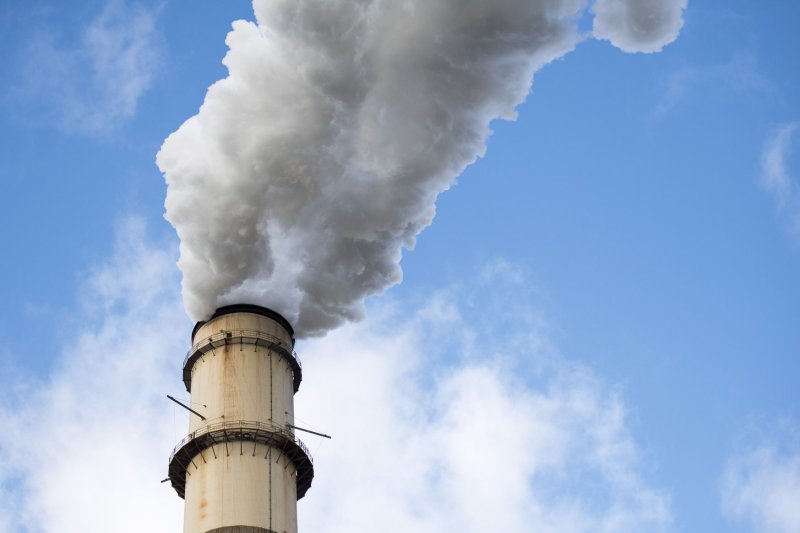Moody's Investors Service finds Japan may be fighting an uphill battle to lower emissions of carbon dioxide. Photo by Kevin Dietsch/UPI |
License Photo
Oct. 23 (UPI) -- Utility companies in the Japanese market face an uphill battle in meeting targets for the reduction in carbon dioxide emissions, Moody's reported Monday.
Moody's Investors Service reported that Japan faces challenges in meeting its commitments to cut greenhouse gas emissions. Based on March levels, the report found emissions from the utility sector will need to be cut by as much as 50 percent to meet 2030 targets.
Japanese ministers took part in an energy summit last month for members of the Association of Southeast Asian Nations. A joint statement issued from the meeting in the Philippines said coal remained a major fuel source in the region and ministers said they were committed to so-called clean-coal technology as part of the broader move to reduction greenhouse gas emissions.
Ministers also said civilian nuclear energy could be a low-carbon driver. Japan's nuclear power sector was idled by the meltdown at its Fukushima facility in 2011 and Moody's said only five of the remaining 42 reactors have restarted.
Nuclear power stations do not emit carbon dioxide, a potent greenhouse gas. Mariko Semetko, a senior credit officer for Moody's, said in the report that some Japanese utilities lack options outside fossil fuels and nuclear power.
"Policy evolution over time and the increasing competitiveness of renewable generation could increase the utilities' risk of having underutilized thermal power assets," she said in a statement.
Japanese Prime Minister Shinzo Abe's coalition scored a win in elections for the House of Representatives, exit polling data suggests, which bolsters his chances of holding onto party leadership in next September's contest and extend his term.
Addressing the U.N. General Assembly last month, Abe said his country was determined to uphold the principles embraced by the global Paris climate deal "in a steadfast manner."'
After the U.N. conference, a report from consultant group Wood Mackenzie found the entire ASEAN region may need as much as $500 billion in investments to build up its power sector. For new sources of fuel, Wood Mackenzie pointed to liquefied natural gas as a strong candidate.
An island nation, Japan relies heavily on imports to meet its oil and natural gas needs and LNG offers a unique option because of diverse options for delivery.















